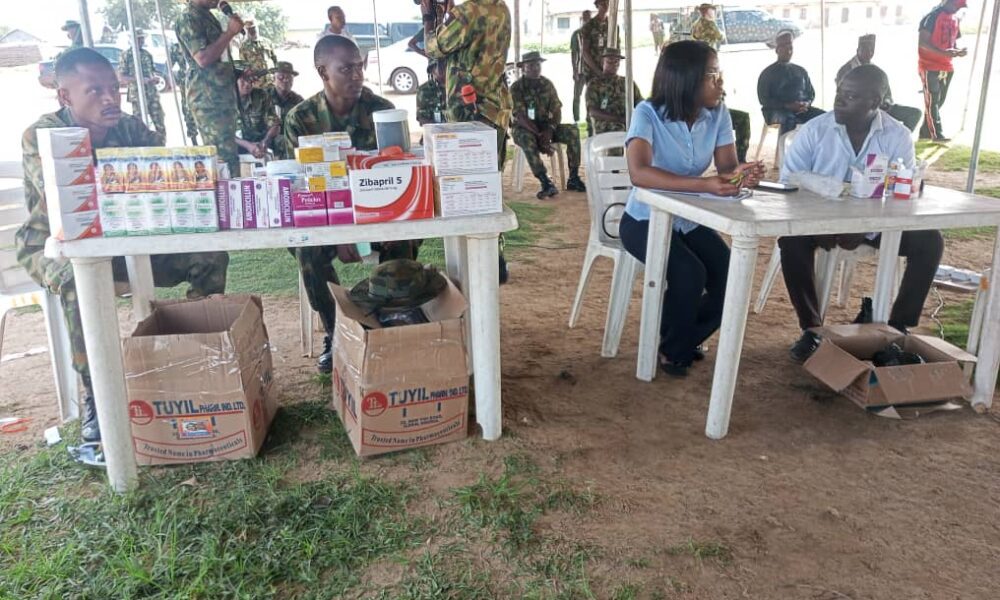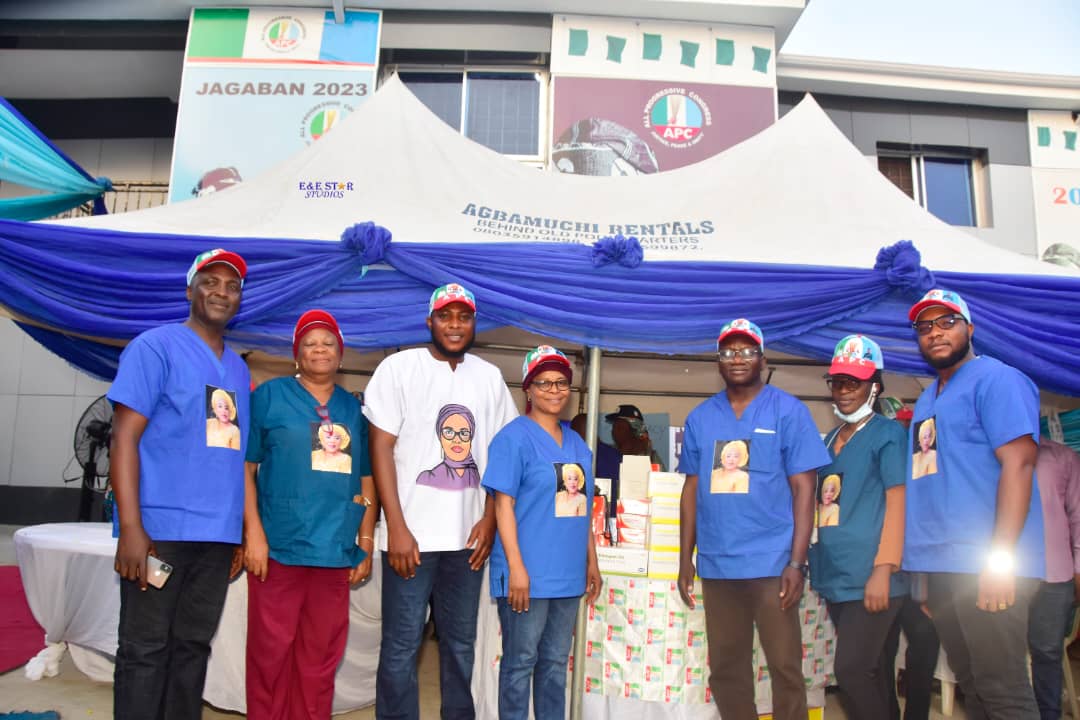***Advocates Military-Civilian relations
As part of the activities to mark this year’s Nigerian Army day celebration, the 31 Artillery Brigade Minna, Niger State has offered free medical services to the people of Garatu Community in Bosso local government area of the State, with an appeal to the people to see the Nigerian Army as part of the society.

Well over 300 persons including women, children and the elderly in the community benefited from the free medical outreach by the Artillery Brigade medical Corps.
Medical services rendered to the people, included general medical consultations, blood pressure check, blood sugar level check and general drugs administration.
Addressing the members of the community before the commencement of the exercise, the Brigade Commander, 31 Artillery Brigade Minna, Brigadier General Hamidu Bobbo said that the free medical outreach which commemorated the 161 year’s of the Nigerian Army formation, is to enhance the Military-Civilian relations.
He stated further that the military did not only protect the civilians but it is also concerned with the health and well-being of the people.
Brigadier General Bobbo pointed out that the free medical outreach which is among the many activities lined up for this year’s Nigerian Army celebration by the 31 Artillery Brigade was part of the Army way of saying thank you to the community for their continued support to the military.
According to him, the theme for this year’s Army celebration; transforming the Nigerian Army imperative for combating contemporary security challenges within a joint environment, is in line with the Chief of Army Staff’s command philosophy.
“It was carefully choosen due to the current security challenges bedevilling parts of the country.”
He disclosed that the community has a great role to play towards combating the security challenges in the state by being vigilant and providing useful information to the the Nigerian Army, adding “every community in Nigeria Should see the Nigerian Army as part of the community and relate with the soldiers freely.
“Useful information from our communities can help the Nigerian Army greatly in the fight against banditry, insurgency and other forms of criminal activities in the country”.
Earlier the Chairman of Bosso local government area, Hon. Ladidi Bosso thanked the Artillery Brigade for chosing her local government for this year’s free medical outreach as part of the activities to mark the Nigerian Army day celebration.
The Chairman who was represented by the secretary of the local government Mallam Danlami Maiangwar said the free medical outreach by the Army is highly recommendable and it will go a long way in boosting the Military Civilian relation.
He assured the Military of the Council’s support at all time in its effort to rid the state of banditry, insurgency and other criminal elements.
The Artillery Brigade kicked started the Nigerian Army day celebration on Tuesday with a public speaking amongst some selected secondary schools in the state where some educational materials, including exercise books were distributed to the students.





